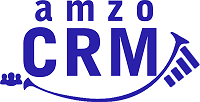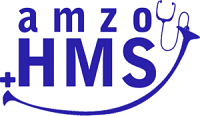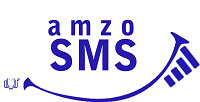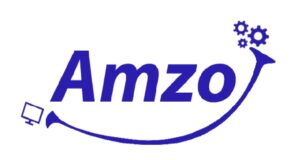Optimize Business with Amzo
best software for business optimization.

CRM FOR SMALL OR MEDIUM BUSINESS
Customer relationship management (CRM) is a technology for managing all your company’s relationships and interactions with customers and potential customers. The goal is simple: Improve business relationships. A CRM system helps companies stay connected to customers, streamline processes, and improve profitability. A customer relationship manager is typically responsible for customer relationships after the sale or service process is complete, and they continue to work with customers to keep them up to date on products and services to maintain that relationship. The CRM cycle involves marketing, customer service and sales activities. It starts with outreach and customer acquisition and ideally leads to customer loyalty. There are five key stages in the CRM cycle: Reaching a potential customer. Customer acquisition.
CUSTOMER RELATIONSHIP MANAGEMENT (CRM) FEATURES
- Appointment Scheduling
- Billing & Invoicing
- Configurable Workflow
- Email Management
- Inventory Tracking
- Financial Management
- Client Management
- Approval Process Control
HOSPITAL MANAGEMENT SYSTEM
Hospital management system is a computer system that helps manage the information related to health care and aids in the job completion of health care providers effectively. They manage the data related to all departments of healthcare such as, Clinical. Financial. Laboratory. Medical hospital – medical hospital includes the treatment and management of patients by a team of doctors. Patient Support provides nursing, nutritional diagnostic, counseling, pharmacy, and medical supplies, all of which are directly related to patient care. Hospital management allows to set a benchmark and to improve the delivery of healthcare services. Accessibility, quality, and efficiency are the three dimensions of the Health System Performance.
HOSPITAL MANAGEMENT SYSTEM FEATURES
- Appointment Scheduling
- Electronic Health Records (EHR)
- Prescription and Medication Management
- Billing and Invoicing
- Doctor and Staff Management
- Human Resources Management
- Reports and Analytics
- Security and Access Control
SCHOOL MANAGEMENT SYSTEM
School management systems (SMS) are software applications that help schools to streamline their operations and improve efficiency. SMS can be used to track student information, manage attendance, grade assignments, and communicate with parents. On the other hand, decentralized education management involves devolving decision-making power to local schools, departments, or individual educators. This approach fosters autonomy, encourages innovation, and enables customization based on local requirements. Educational management is defined as the process of planning, organizing, directing and controlling the activities of an institution utilizing human and material resources so as to effectively and efficiently accomplish the function of teaching, extension work and research.
SCHOOL MANAGEMENT SYSTEM FEATURES
- Attendance management
- Timetable management
- Library management
- Better communication
- Student information management
- Fees management
- Student portal
- Admission
FEATURED APPS

CRM software helps you focus on your organisation’s relationships with individual people including customers, service users, colleagues, or suppliers throughout your lifecycle with them, including finding new customers, winning their business, and providing support and additional services throughout the relationship.

Technology has improved immensely in recent days. Improving the quality of one’s life is an important benefit of technology in healthcare. Besides, it also reduces the burden of staff in the hospital and improves the health of the patient easily and efficiently. A hospital Information Management System is an electronic record of all the details.

In simple words managing the affairs of a school. School management means running the school along the desired educational policies. It takes into account all aspects of the school (policies, material and human resources, programmes, activities, equipments etc.) and integrates them into a fruitful whole. Power structure. School organization refers to the structure and functioning of educational institutions. It involves managing human and physical resources, as well as adhering to laws and regulations that influence the educational process.
OUR PRINCIPLES
Copyright © By iGlowSoft


